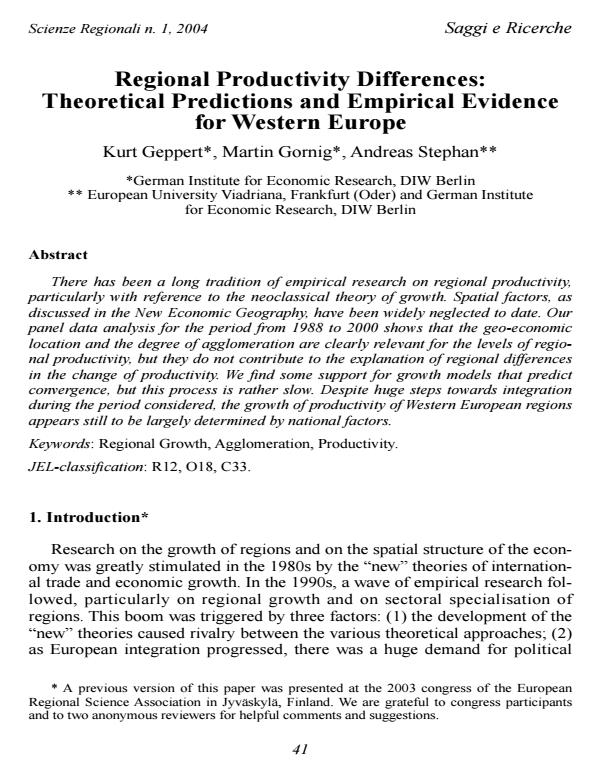Regional productivity differences : theoretical predictions and empirical evidence for western Europe
Journal title SCIENZE REGIONALI
Author/s Martin Gornig, Andreas Stephan, Kurt Geppert
Publishing Year 1 Issue 2004/1 Language English
Pages 24 P. File size 413 KB
DOI
DOI is like a bar code for intellectual property: to have more infomation
click here
Below, you can see the article first page
If you want to buy this article in PDF format, you can do it, following the instructions to buy download credits

FrancoAngeli is member of Publishers International Linking Association, Inc (PILA), a not-for-profit association which run the CrossRef service enabling links to and from online scholarly content.
<i> Regional Productivity Differences: Theoretical Predictions and Empirical Evidence for Western Europe </i> (di Kurt Geppert*, Martin Gornig*, Andreas Stephan) - ABSTRACT: There has been a long tradition of empirical research on regional productivity, particularly with reference to the neoclassical theory of growth. Spatial factors, as discussed in the New Economic Geography, have been widely neglected to date. Our panel data analysis for the period from 1988 to 2000 shows that the geo-economic location and the degree of agglomeration are clearly relevant for the levels of regional productivity, but they do not contribute to the explanation of regional differences in the change of productivity. We find some support for growth models that predict convergence, but this process is rather slow. Despite huge steps towards integration during the period considered, the growth of productivity of Western European regions appears still to be largely determined by national factors.
Martin Gornig, Andreas Stephan, Kurt Geppert, Regional productivity differences : theoretical predictions and empirical evidence for western Europe in "SCIENZE REGIONALI " 1/2004, pp , DOI: